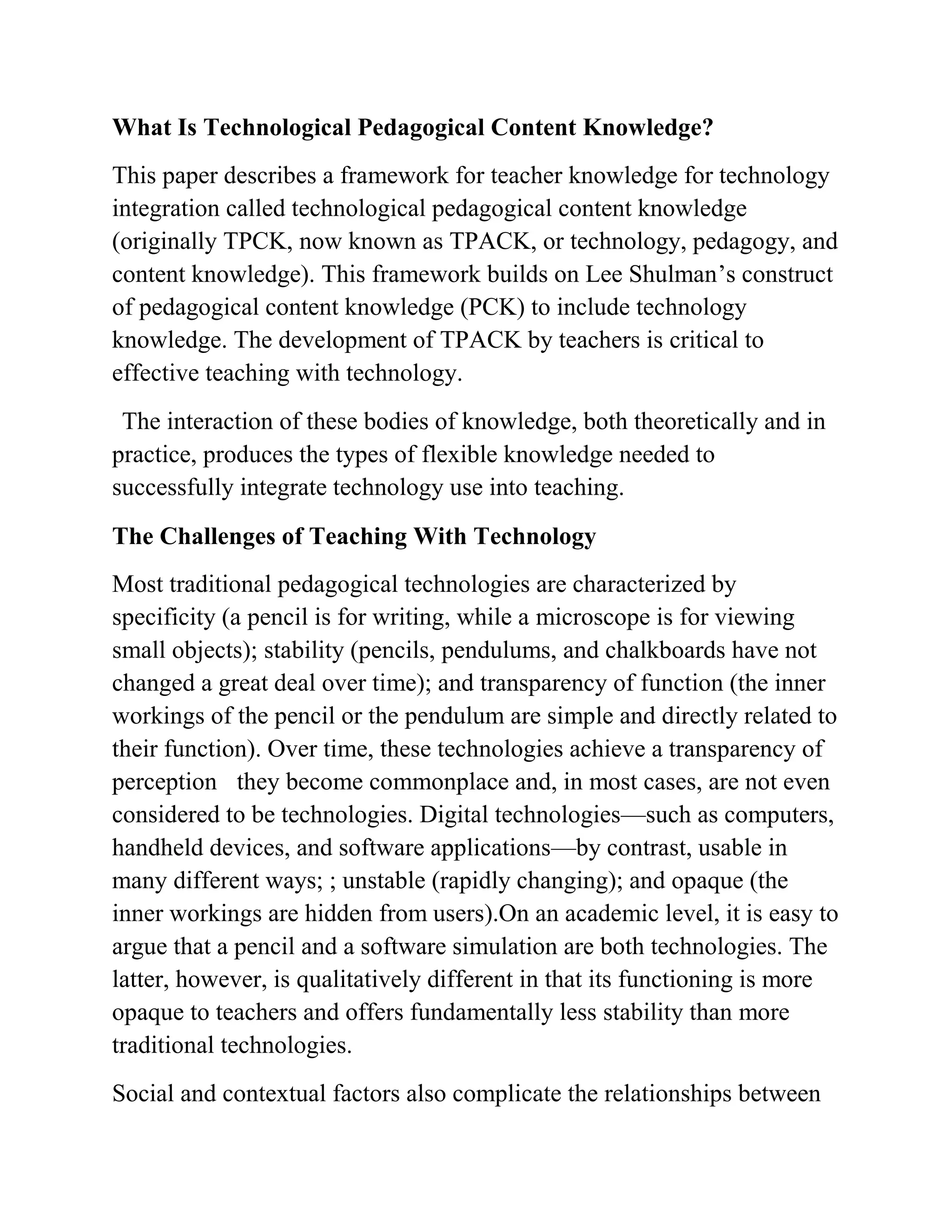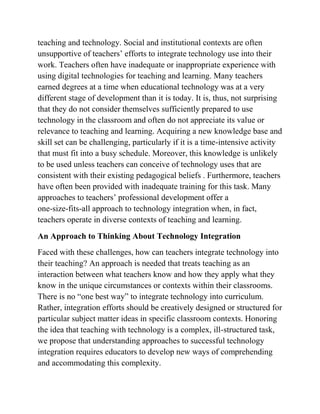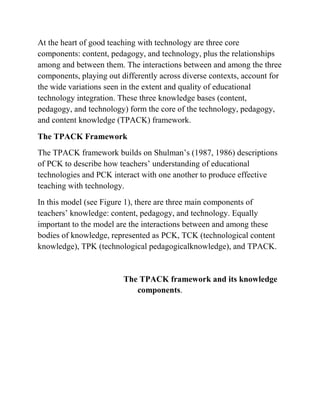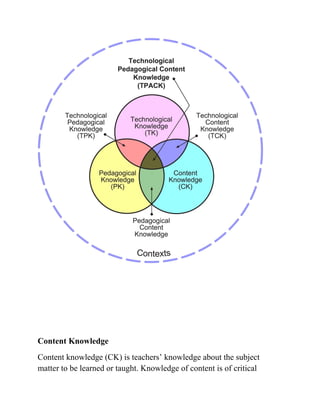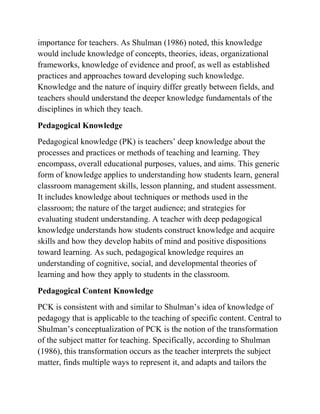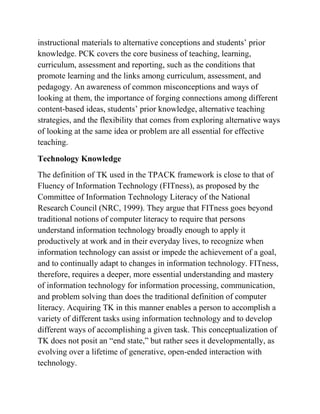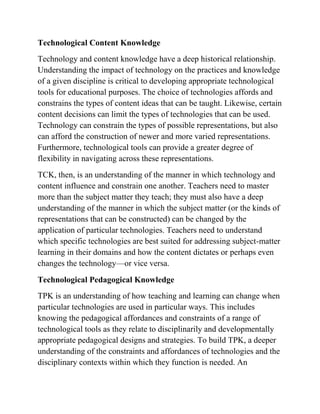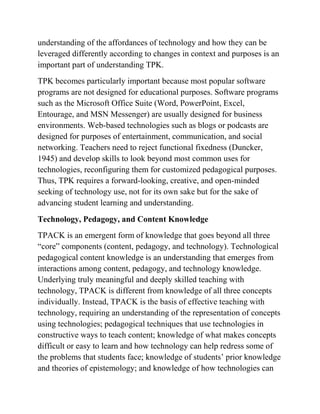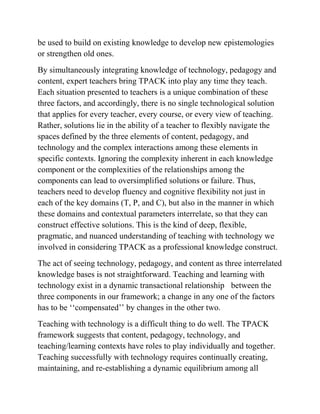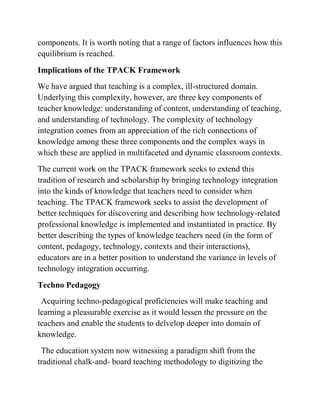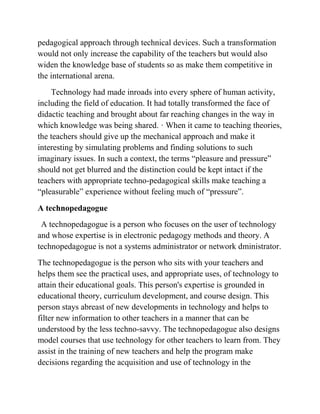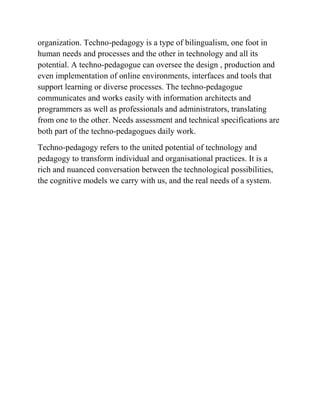This document discusses technological pedagogical content knowledge (TPACK), a framework for teacher knowledge for effective technology integration. TPACK builds on Shulman's construct of pedagogical content knowledge to include technology knowledge. The framework describes the interaction between teachers' content knowledge, pedagogical knowledge, and technology knowledge. Effective teaching with technology requires understanding these three core components as well as the relationships between them.
